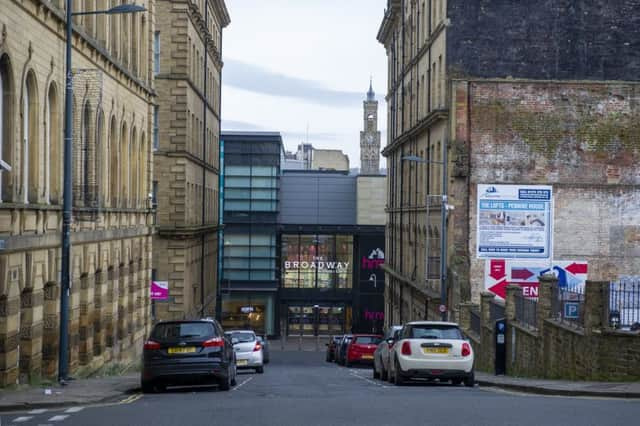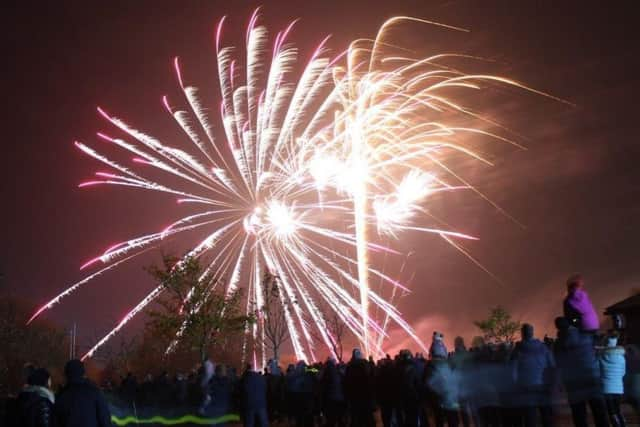Time to put a rocket up Bradford’s low-level lawlessness – David Behrens


So much for satire. It could not have been more surreal had he gone on to announce that a dead parrot was to be Tony Hall’s replacement as director-general.
The Pythons’ battles with the corporation were the stuff of legend, and the fact that it gave Jones a higher billing than the leader of the free world, seemed somehow to validate the brand of absurdity he had helped pioneer. In the end it was more sensible than reality.
Advertisement
Hide AdAdvertisement
Hide AdAs his admirers mourned him, and as Lord Hall shuffled off to a sinecure looking after the National Gallery, events closer to home betrayed another welcome ray of common sense. They also served to lay bare the gulf between Hall’s cloistered reality and ours.


The development came in Bradford, where the council finally admitted there was a problem with fireworks. Its residents have known this for years, but the issue has apparently been too incendiary to do anything about.
Bradford council launches review of fireworks after complaints of displays being held all year round
Explosives are not a once or twice-a-year nuisance there; every religious or family occasion has, the council acknowledged, become an opportunity for people to draw attention to themselves by releasing rockets into the sky, as noisily as possible. It’s like Twitter with gunpowder.
Advertisement
Hide AdAdvertisement
Hide AdAcross the district, fireworks have become part of the standard ritual of celebration, to be distributed with the same abandon as confetti. People in more volatile countries fire automatic rifles into the air when they have something to celebrate; we let off Roman candles.
The overview and scrutiny committee in Bradford – and which visitor to the city would have guessed that any scrutiny went on there? – has announced a “wholesale review” of the practice and acknowledged manifold complaints of anti-social behaviour.
“Large firework celebrations seem to be happening a lot more often throughout the year both at night and during the day, with loud noise causing distress,” said the council, trying to make itself heard over the racket.
It’s impossible to overstate the scale of the problem in a part of Yorkshire where people pay as little heed to the law on fireworks as they do to the one requiring drivers on Barkerend Road to carry insurance.
Advertisement
Hide AdAdvertisement
Hide AdThe council’s Liberal Democrat group wants the city to impose a by-law that would restrict their use, citing a precedent in the northern Italian town of Collecchio. This would be a step forward, but it should not cloud the bigger issue of an ingrained culture of low-level lawlessness that is at the root of the problem.
As the Lib Dems point out, the fireworks being complained of are being bought and sold illegally, yet used openly. This puts them in the same bracket as drugs, with which Bradford is also known to have a problem.
But the trade in fireworks has been going on beneath the radar of the law enforcement authorities. This is understandable – the police have enough to do without raiding wedding breakfasts to see if the boutonniere pinned to someone’s morning suit is actually a Catherine wheel.
Advertisement
Hide AdAdvertisement
Hide AdA snippet from this week’s news illustrates the depth of the problems officers face in tackling the city’s rampant underworld economy. Three taxi drivers, it was reported, were suspended as a result of a “road safety crackdown” on the Holme Wood estate to check for the illegal use of red diesel – agricultural fuel which farmers can buy for off-road use without paying the usual duty. Where else would such an operation have been necessary?
In this context, the council’s move to tackle the noise blight caused by fireworks is significant, for it sends an implicit message that the lawlessness to which it has previously turned a blind eye will no longer be tolerated.
The scrutiny board has committed so far only to consulting members of the public and feeding their views into a “wider information-gathering session”. But it must not stop at that. Having taken the lid off the box of bangers, it must follow through and literally lay down the law.
To do otherwise would be irresponsible and not a little absurd.